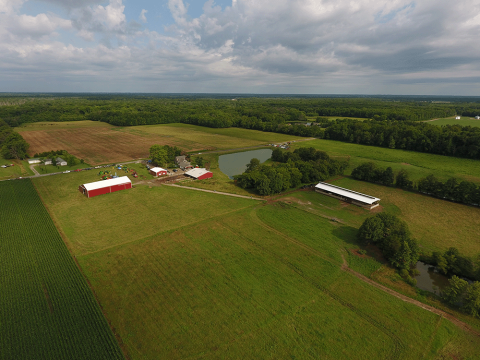Farms have a promising opportunity to fight climate change using a simple but plentiful asset: soil. Soil has the capacity to store carbon in amounts that can meaningfully offset greenhouse gas emissions through retaining carbon (otherwise called carbon sequestration).
The private sector has established corporate goals for reducing contributions to climate change by offsetting emissions, with one method being carbon sequestration on agricultural lands. The incentivized, voluntary markets for agricultural soil carbon sequestration are a potential opportunity for farmers to meet these corporate goals.
A new brief from the Center for the Economics of Sustainability at the University of Illinois explores the market opportunity of incentivizing carbon sequestration in agricultural lands and the current limitations of contract design and land tenure. Authors Amy Ando*, Jonathan Coppess*, Benjamin Gramig**, Menglin Liu*, and Nicholas Paulson* discuss how current challenges can be addressed to unlock these opportunities in “The Achilles Heels of Carbon Farming: Operational Constraints on the Next Cash Crop”. The brief is published on SSRN.
*UIUC, Department of Agricultural and Consumer Economics
**US Department of Agriculture
Ando, A.W., Coppess, J., Gramig, B., Liu, M., & Paulson, N.. (2022). The Achilles Heels of Carbon Farming: Operational Constraints on the Next Cash Crop (July 18, 2022). SSRN: https://ssrn.com/abstract=4166379 or http://dx.doi.org/10.2139/ssrn.4166379
